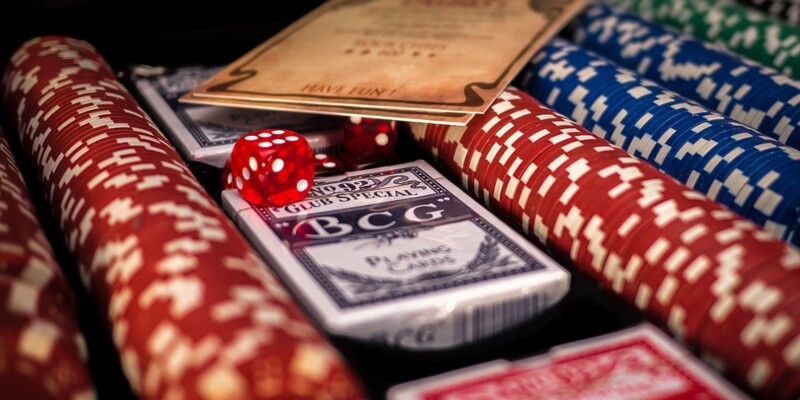How To Play A 10 And 11 Online Blackjack Hand

Hitting and doubling on a hard 10 Ace hand is an online blackjack scenario which can result from being dealt the following two-card hands: 3-7, 4-6, 2-8, and 5-5. One big mistake a novice blackjack player will often make here is to split a pair of 5s. This is always a bad blackjack strategy – unless, that is, you have been counting cards and thus are pretty sure you know what remains in the deck or shoe.
For a basic blackjack strategy player, splitting a pair of 5s makes little sense simply because a starting total of 10 is one of the best hands you can get to begin any round. And if you go ahead and split, you then risk pulling out a pair of ten-value cards, so each 5 becomes a hard 15 – surely one of the worst online blackjack totals you can get. This 15 is both too low a total to consider standing, and yet far too high to hit. That’s because there’s an all too realistic chance you will just go bust when you draw another card. And there are far too many cards which can get you in deep trouble when you execute this type of move in online blackjack games.
In both pitch casino games and multiple-deck blackjack, it’s customary to always hit or double on a total of 10. But here, the best decision depends on what kind of upcard your dealer is showing. In this scenario the deck number and house rules are irrelevant. When holding on a pair of 5s, those players using a basic blackjack strategy should double against all dealer upcards reading from deuce through to a 9, but hit whenever your dealer reveals either a ten-value card or an Ace.
Why you shouldn´t double on Hard 10
Doubling with a hard 10 when your dealer reveals a 10 or an Ace is never advisable because either of these two cards will ultimately leave the gambling site in a very favourable position indeed. If you’re not sure about this, consider the following: You have a total of 10 in your hand and you’re facing a dealer who now has a powerful 10 card, or perhaps an Ace. So let’s analyse what will happen with each possible card value you may draw in these circumstances. You might, for instance, end up with a deuce or any value through to 6. As a result, you would finish up with awful hard totals of 12 through to 16.
Suppose you draw a 7 for a hard 17. That’s not really good enough because, statistically speaking, the average winning blackjack hand totals 18.5. So the chances are you will either push with the dealer or find yourself losing if they get a better total. In this scenario, you’re basically left with nothing but hoping your dealer will go bust, then maybe you could draw an 8 to give you a hard 18 hand, but, as has been noted, this seems a fair total but it’s still just a little below that average total you’ll need to have a real chance of winning casino games. Otherwise, you pull a 9, 10, or an Ace and finish up with excellent totals of 19, 20 or 21.
Out of the 49 cards remaining in the deck, only 23 values can get you to the safety of 19, 20 or 21. On the other hand, there are 26 cards which will bring you a hard total of 12 through to 18, which you can’t risk improving but which is still weak enough for the dealer’s 10-value card to win the round. That means your chances of getting to improve your hand to something beyond the average winning total of 18.5 are lower than 50%. That hardly justifies a strategy of doubling when you’re faced with a dealer’s 10 or Ace.
Basic online blackjack strategy for 11
An 11 total from your starting hand puts you in an optimal position, especially when your dealer is in trouble with low-value upcards. Here are the hands that will give you that total: 9-2, 8-3, 7-4 and 6-5. While your dealer’s upcard is crucial to your choice of an optimal strategy, this analysis is split into two sections to also consider variables like the dealer’s house rules and the number of decks. The player holding an 11 has just one option in both single- and double-deck blackjack: Always double down in pitch games, regardless of the value of the dealer’s upcard. A dealer’s hard or soft 17 doesn’t matter – double when you have a two-card 11 and hit if it’s three or more low-value cards.
It’s a bit more complicated if you hold 11 in a multi-deck online casino game because your optimal choice is affected by the dealer’s house rules. With a soft-17 rule, the basic strategy is to hit if the dealer shows an Ace, but double down against all remaining cards. But with a hard-17 rule, you should double against any upcard, including Aces.

